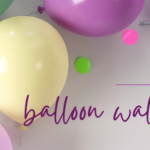Introduction to Adjectives
Adjectives are the vibrant brushstrokes of language, adding color and depth to our descriptions. They help us paint a clearer picture in the minds of our readers. Among these descriptive words, adjectives with the letter S bring their own unique flair and charm. Whether you’re crafting an essay, writing a story, or simply trying to enhance your vocabulary, knowing various adjectives that start with S can elevate your writing.
But why focus specifically on those starting with this letter? The answer lies in their versatility and impact. From expressing positive traits to painting vivid images of places or emotions, S-adjectives have a special place in communication. Ready to explore this fascinating realm? Let’s dive into a world filled with scintillating descriptors that will enrich your language skills!
Importance of Using Adjectives with the Letter S
Adjectives are the unsung heroes of language. They add depth and detail, transforming simple sentences into vivid imagery. When it comes to adjectives with the letter S, they bring an extra flair that can truly enhance your writing.
Words like “serene,” “sophisticated,” and “sparkling” evoke specific feelings and visuals. This specificity engages readers more effectively, drawing them into the narrative or description.
Using S-adjectives allows for versatility in expression. Whether you’re crafting a story or describing a scene, these words can convey moods ranging from joyous to somber.
Additionally, incorporating these adjectives makes your writing feel fresh and dynamic. It breaks monotony while maintaining clarity—the perfect balance for any writer aiming to captivate their audience’s attention effortlessly.
Positive Adjectives with the Letter S
When it comes to positive adjectives starting with the letter S, there’s a world full of vibrant options. These words can bring life and enthusiasm to your writing.
Consider “successful.” It speaks volumes about achievement and progress. This word not only uplifts but also motivates others around us.
Another delightful choice is “sincere.” It conveys honesty and authenticity, creating a connection that resonates deeply in conversations or written work.
“Sparkling” adds a touch of brightness. Whether describing personality traits or experiences, this adjective evokes joy and excitement.
Then we have “supportive,” which perfectly illustrates kindness and encouragement. Using it highlights the importance of nurturing relationships in any context.
Lastly, “stunning” captures beauty effortlessly. It’s perfect for both people and picturesque landscapes, instantly elevating descriptions into something extraordinary.
Negative Adjectives with the Letter S
Negative adjectives starting with the letter S often carry strong connotations. They can vividly express dissatisfaction or disapproval.
Words like “sad” evoke a sense of sorrow and melancholy. They describe feelings that may resonate deeply with readers.
Then there’s “selfish,” which paints a clear picture of someone who prioritizes their own needs over others’. This term captures the essence of disregard for communal well-being, striking a chord in social contexts.
Another potent word is “shabby.” It suggests neglect and lack of care, often referring to appearances or conditions that have seen better days.
And let’s not forget “sullen.” This adjective characterizes an atmosphere filled with gloominess, reflecting emotions that weigh heavily on interactions.
These words are essential tools in any writer’s arsenal, allowing them to convey complex emotions succinctly. Each carries its weight and adds depth to descriptions.
Describing People with Adjectives Starting with S
Describing people with adjectives that start with the letter S can add depth to your writing. These words not only convey characteristics but also evoke emotions and visuals.
Consider someone who is smart. This adjective highlights intelligence and quick thinking, making it a great choice for academic or professional contexts.
Then there’s serene, which paints a picture of calmness and peace in an individual’s demeanor. It’s perfect when you want to describe someone who brings tranquility to any situation.
On the other hand, you might encounter a stubborn individual. This word captures a sense of determination, but it can also suggest resistance to change—a double-edged sword in personality traits.
Using such adjectives allows for rich descriptions that resonate with readers. They help create memorable characters by illustrating both their strengths and flaws vividly.
Describing Things and Places with Adjectives Starting with S
When we think about places and things, adjectives starting with the letter S can paint vivid pictures. Imagine a serene landscape where mountains meet soft, sandy beaches. These words transport us to locations filled with splendor.
Consider a bustling city scene brimming with stylish cafes and stunning architecture. Each adjective adds layers of detail that spark curiosity and excitement.
In nature, you might encounter shimmering lakes reflecting sunlight or sprawling savannahs dotted with resilient shrubs. Such descriptions evoke feelings of adventure and peace alike.
Whether describing an antique shop filled with small treasures or a sleek modern office space, choosing specific adjectives enhances your imagery. Simple yet powerful descriptors transform ordinary scenes into extraordinary experiences in our minds.
Using Strong and Unique Adjectives in Writing
Strong and unique adjectives breathe life into your writing. They add color, depth, and emotion to your words. Instead of relying on common descriptors like “good” or “bad,” opt for more specific choices that convey precise meanings.
For instance, rather than saying “sad,” consider using “sorrowful” or “melancholic.” These alternatives evoke stronger feelings in readers’ minds.
When describing a scene or character, vivid adjectives create clearer images. A “sparkling” lake is far more inviting than just a “nice” one. This level of detail pulls readers into the narrative.
Experimenting with unusual adjectives can also capture attention. Words like “serendipitous” or “stirring” engage curiosity and provoke thought.
Choosing powerful adjectives enhances not just descriptions but the entire reading experience. It makes your message memorable and impactful while leaving an impression long after the last word is read.
Conclusion
Adjectives play a crucial role in enriching our language. They help us convey emotions, describe appearances, and add depth to our writing. Focusing on adjectives with the letter S can enhance your vocabulary and make your expressions more vivid.
Using positive adjectives like “sparkling,” “stunning,” or “sophisticated” can create an appealing image in the reader’s mind. On the flip side, knowing negative adjectives such as “sad,” “selfish,” or “shabby” allows for nuanced descriptions that reflect reality.
When describing people, words like “charismatic,” “sincere,” and “supportive” highlight personality traits effectively. Meanwhile, for things and places, terms like “serene,” “spacious,” or “spectacular” evoke specific feelings associated with those objects or locations.
Incorporating strong and unique adjectives into your writing not only captivates readers but also sets you apart from others. Whether you’re crafting a story, an essay, or even just a casual message to friends—using descriptive language makes all the difference.
Exploring adjectives with the letter S opens up new ways to express yourself creatively. The next time you write something down, consider how these powerful words can elevate your work.








